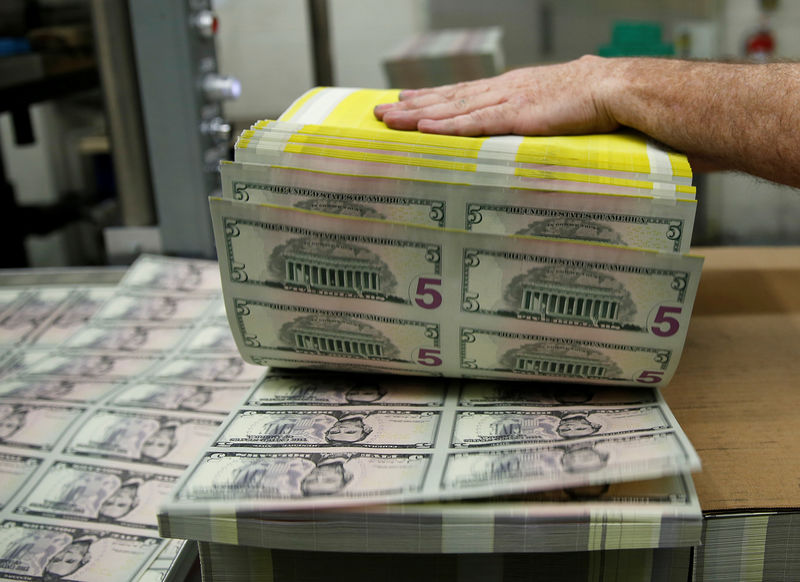Investing.com - The dollar rose to one-week highs against a currency basket on Monday as a trade truce between the U.S. and China dampened demand for safe haven currencies, such as the yen and the Swiss franc.
After meeting Chinese President Xi Jinping in Japan on Saturday on the sidelines of Group of 20 summit, U.S. President Donald Trump said he would hold back on new tariffs and that China will buy more farm products.
Trump also said the U.S. Commerce Department would study over the next few days whether to take Huawei off the list of firms banned from buying components and technology from U.S. companies without government approval.
A relief rally swept through global financial markets on Monday as fears over a full blown trade war between the world’s two largest economies eased, though analysts say the lack of any substantive agreement between the two sides mean the woes in the global economy are likely to persist.
The dollar was up 0.6% at 108.48 yen by 03:13 AM ET (07:14 GMT) after going as high as 108.53 overnight.
Supported by the greenback's rise against the yen, the U.S. dollar index against a basket of six major currencies added 0.5% to 96.15.
The dollar was up 0.8% to 0.9837 against the traditional safe haven Swiss franc.
The euro fell 0.43% to 1.1318.
Investors were looking ahead to the Institute of Supply Management's manufacturing index for June later in the day.
"The focus now shifts to U.S. fundamentals with the G20 over," said Koji Fukaya, director at FPG Securities.
"Some Fed officials curbed easing views recently and the data will help the market get a clearer picture of whether the Fed stands poised to cut rates this month."
At a June 18-19 policy meeting the Federal Reserve opened the door for possible interest rate cuts later this year. But comments last week from central bank officials, including Chair Jerome Powell, and the weekend trade truce have cooled expectations for aggressive rate cuts.
A report overnight showed that China's factory activity unexpectedly shrank in June as domestic and export demand faltered, pointing to further strains on its vast manufacturing sector as the trade war drags on.
The Australian dollar, sensitive to the economic fortunes of China, the country's largest trading partner, was down 0.34% at 0.6995.
--Reuters contributed to this report
